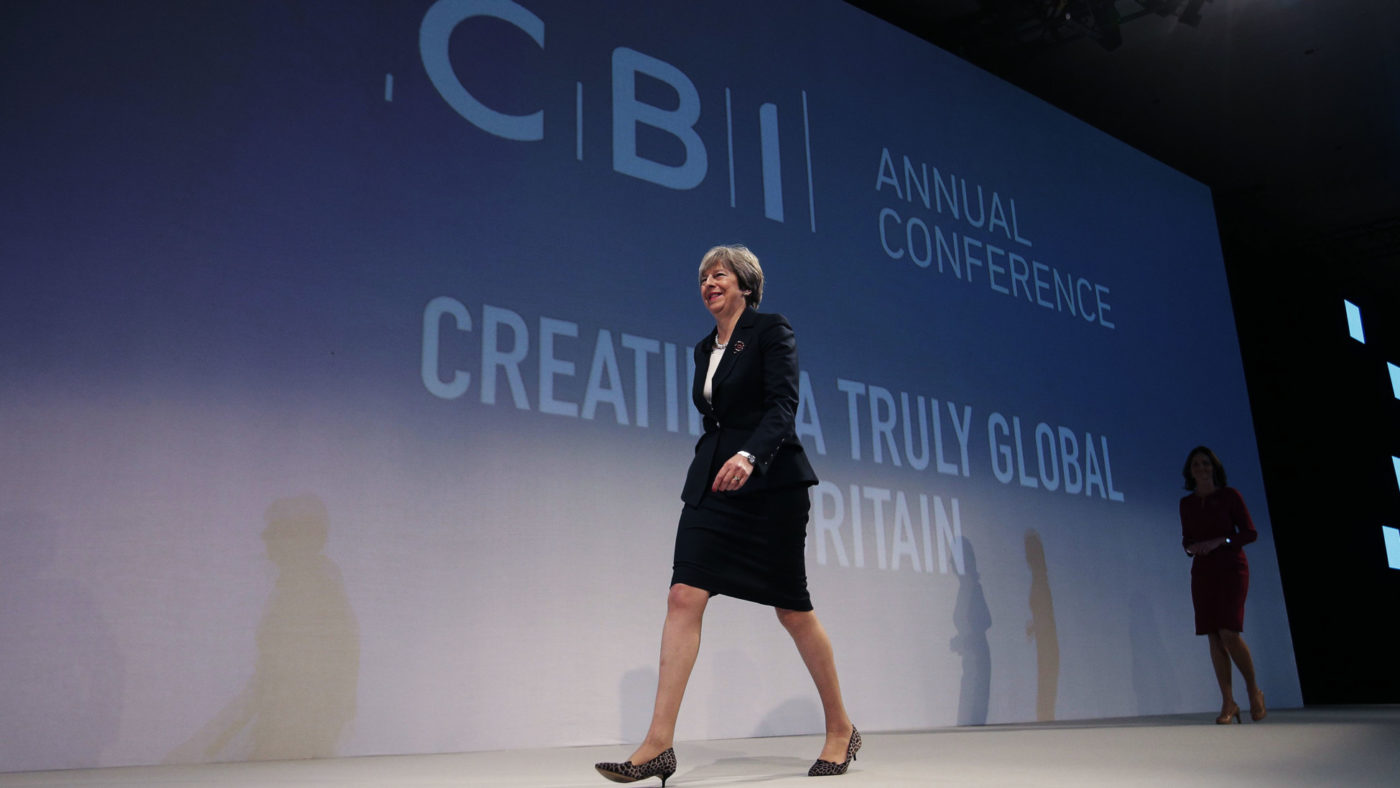Brexit represents a great opportunity for British businesses of all sizes. Small and medium-sized enterprises (SMEs) will be freed from burdensome EU red tape, while larger firms will gain new trading destinations around the world.
After funding and supporting the Remain campaign in the EU Referendum, big banks and business groups are trying to stall and shape Brexit. Invariably, their preferred type of Brexit appears to be the opposite of what Britons actually voted for on June 23 2016.
The Confederation of British Industry (CBI) was at the forefront of demands for a Transition Period after Britain leaves the EU – supposedly to prevent a “cliff-edge” Brexit. This will now delay the real Brexit date by around 2 years – or longer, if they can get away with it. Mass immigration and European Court of Justice jurisdiction will continue during this period. Today, Carlyn Fairbairn, the CBI’s director general, is calling for a transition deal where “prosperity must be put ahead of politics”.
During the Referendum campaign, both the Leave and Remain sides reiterated Single Market membership would end after a Leave vote – and there was no mention of any Transition Period – which big business later claimed was necessary.
Business groups claim EU Single Market membership is essential to our ability to trade. However, most countries around the world are not members of any international single market. The United States, China, New Zealand and other countries are in control of their own regulations and have great success in international trade. Once we become a self-governing nation again, signing our own trade deals, Britain will join them as a global leader in free trade. Big businesses will gain huge benefits from the growth of these new export destinations.
Purported fears of a “cliff-edge” are utterly unfounded, as regulatory certainty will be guaranteed by the EU Withdrawal Bill, which transposes EU law into UK law.
On the day after Brexit, regulations will be the same as now. They will only be gradually and incrementally reformed – or scrapped – by our newly sovereign Parliament.
In addition, the UK’s upcoming departure from the EU has been known for 18 months already, and we will not be leaving the EU for another 14. This is plenty of time for businesses to get their act together, without demanding a further 2 years, merely to allow big firms to make Brexit preparations.
Voters are right to be suspicious of the motives of the CBI (which claims to represent British businesses, but does not disclose its membership list – or where those companies are registered), which thinks that the longer a full Brexit is delayed, the longer they have to try and stay inside the EU.
It is not surprising the CBI wants the UK to stay as closely tied to the EU as possible. Since 2009, the CBI has received huge sums in funding from the European Commission, making up a fifth of its total post-tax income; in return, loyally supporting Britain’s EU membership.
Aside from the financial advantage, big business benefits from the EU’s Single Market and Customs Union as they raise the barriers to entry for competitor firms and countries. Large exporters only have one set of rules to follow across all 31 Single Market Members.
In addition, Single Market membership comprises a vast array of complicated rules and regulations across swathes of industry affecting all of our everyday lives – from dictating the power levels of vacuum cleaners to which light bulbs we can use.
A large proportion of this red tape has little basis in public interest. Instead, it serves to shield existing big business from competition, and keeps prices high. Unlike start-up firms hoping to establish themselves in the market, international companies can afford legal departments necessary to ensure compliance, as well as the huge cost of lobbyists necessary to influence lawmakers in the corridors of Brussels.
All firms in countries which are Single Market members must abide by EU regulations. In Britain, less than 10 per cent of businesses export to the EU – indeed, most trade within 10 miles of where they are located, but whether they do or not, they are all forced to comply with these onerous regulations.
Businesses represented by the CBI do not want Britain to leave the Single Market, because once we leave the EU, we will be in full control of our own regulatory policy, ending this complicated system, and reducing the regulatory burden for SMEs.
As members of the EU, we have very little influence on regulations, for two reasons. First, as one of 28 Member States, whose interests are often at odds with ours, we are regularly outvoted. Secondly, our elected MEPs do not have the power to propose or amend legislation. In contrast, our British Parliament is a more democratic legislative body, working in Britain’s own interest.
When we leave the EU and its Single Market, small and medium-sized businesses – particularly those which do not export – will be freed from EU red tape and bureaucracy.


